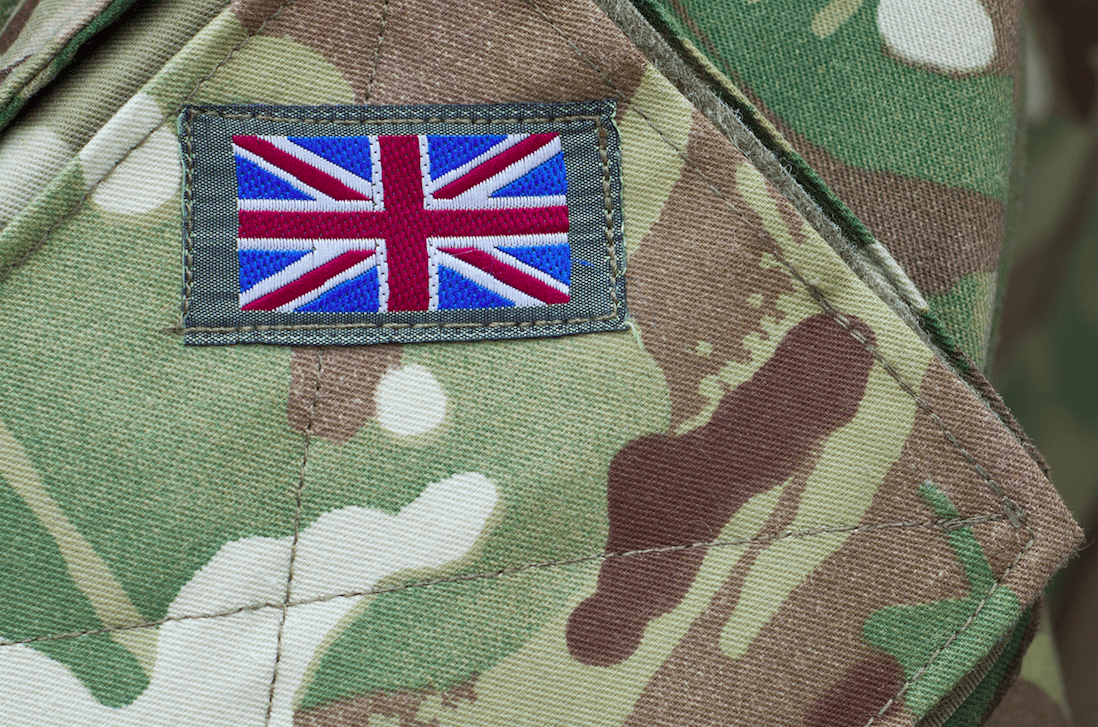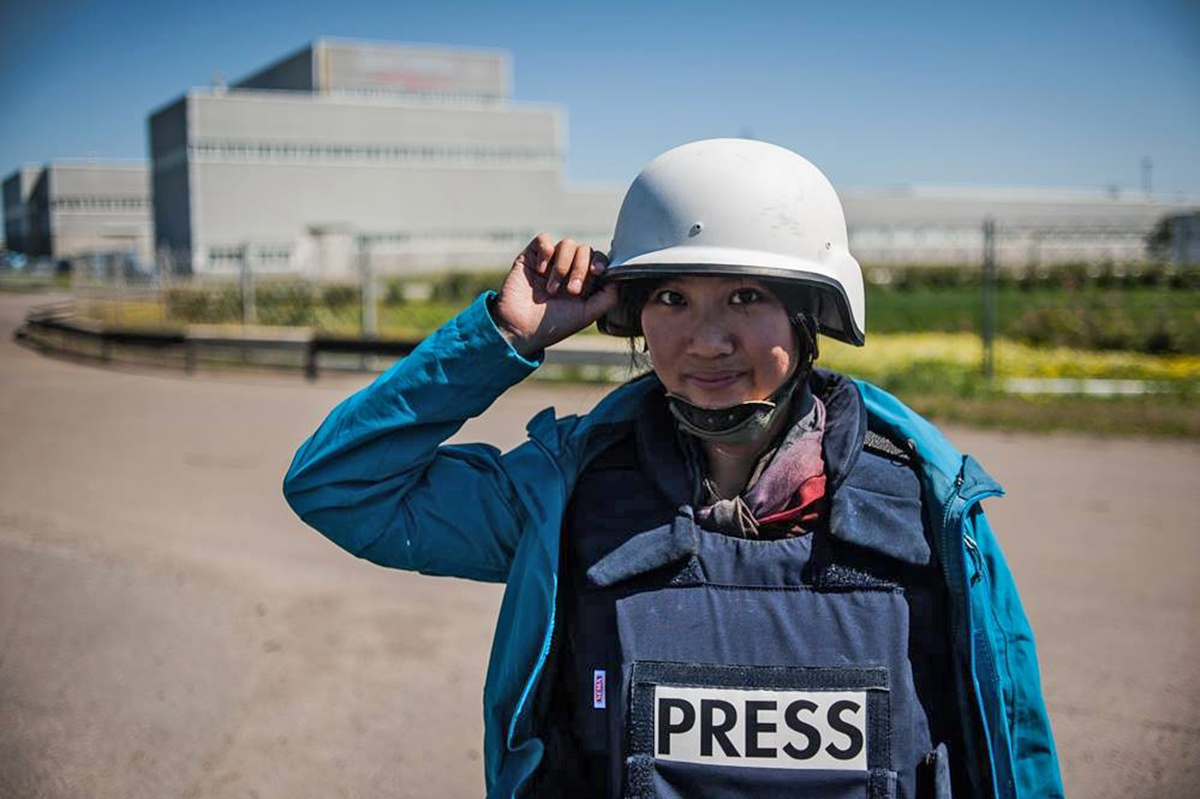Art and Culture
When Good Men Fail to Stand Up to Danger
If we teach men and boys that simple chivalry is a form of sexism that must be opposed, how do we convince them to commit to the braver, more difficult chivalrous demands?

I spent most of last Wednesday watching the news from Westminster. Unfortunately, keeping an eye on the BBC News channel as reports of a terrorist attack in Europe filter through has taken up much of my time in recent years. Usually, the newsreaders quickly run out of verified details and resort to repeating the same headlines on repeat until new facts become available. The coverage of the Westminster attack followed the same pattern but with one change. Soon after the attack, it became clear that MP Tobias Ellwood – who served in the Royal Green Jackets during the 90s – had rushed into the danger as other fled in order to give emergency CPR to the fatally wounded PC Keith Palmer. For the best part of two days, tributes to Ellwood’s stunning bravery kept coming. Journalists, who were generally opposed to sharing images of the attack, circulated the photo of Ellwood hunched over PC Palmer. Most MPs in parliament on Thursday, the day after the attack, included some tribute to Ellwood and his heroism in their speeches.
Tobias Ellwood MP shakes police officer's hand days after trying to save the life of Pc Palmer https://t.co/WzgOyycUhN pic.twitter.com/tTPKszp9Bu
— Telegraph Breaking News (@TelegraphNews) March 24, 2017
Whilst I echo all of the sentiments of those paying tribute to Ellwood, I have found myself wondering how many British men would have acted like him.
If you saw someone being violent on a train, would you step in to prevent them from causing further harm? What about if you saw a woman being sexually assaulted on the London Underground, would you come to her aid and restrain the assaulter? I don’t wish to cause personal offence to you, dear reader, but I’m not convinced that you would. Both problems are getting worse, and it seems that fewer people are willing to stand up, be brave, and put themselves in harm’s way to protect those caught at the hands of a violent criminal. As far as I can tell, the sense of duty and physical readiness that propelled Tobias Ellwood into action is lacking in the general public. It seems that this weakness is especially common amongst men, where, as I will argue, those qualities matter more.
After a year stuffed full of news from around the globe, one story in particular stuck with me more than any other. On the 12th of December of last year, a thirty-eight-year-old man marched through a London Overground carriage whilst brandishing a knife and shouting to his fellow passengers that he wanted to kill a Muslim. He passed through the carriage without resistance – even stopping to ask a woman in a Hijab where “her man” was – before finally reaching his victim: Muhammed-Askar Ali. He stabbed Mr Ali ten times. No one stepped in to stop him. After he had completed his attack, a nurse came to Mr Ali’s aid. When the train reached Forest Hill station, passengers ran and hid in nearby shops. It took the police ten minutes to arrive at the scene. Slower passengers who were unable to reach the safety of the shops were immensely fortunate that the attacker did not continue the violence.
Muhammed-Askar Ali’s plight is not rare. The problem of unobstructed public violence, especially on public transport, is getting worse. In 2010, there were 6377 violent assaults on the London Underground network. By 2015, that number had risen to 8164. The problem also extends to sexual assault. The number of sexual assaults on the London Underground doubled in the same time from 544 to 1179. And according to TfL, 1 in 7 female passengers aged over 16 experienced sexual harassment on London’s public transport in 2014.
A number of solutions have been proposed to tackle these issues, although politicians have tended to treat the sexual assault problems as a priority. British Transport Police launched their ‘Report it to Stop it’ campaign, Labour Leader Jeremy Corbyn has argued for women-only train carriages, and British Transport Police also carried out a ‘secure stations’ scheme, where better lighting and more see-through fencing has been put in place. All of these proposals could curtail the problem of assault on public transport, but none of them deal with the crux of the issue: good men are failing to stand up to danger in public. They are lacking in strength, bravery, and a sense of duty to protect vulnerable people.
It’s no surprise that men are no longer fulfilling this duty. The physical strength of western men has been decaying for the best part of thirty years. In the United States, the average grip strength for male millennials is below the average grip strength for American mothers in the 1970s. Testosterone levels in men have been steadily declining for the last two decades. Men are doing little to reverse this trend. Research by the British Heart Foundation has revealed that 19% of all English men are essentially ‘inactive’. In the North West, the rate of male inactivity reaches 26%. Tobias Ellwood was ‘swift and bold’, which is the motto for the regiment that he served in, but most British men lack the physical capacity for either quality.

Sadly, there is little hope for the next generation. Boys are also succumbing to the curse of inactivity. With parents who are either inactive or barely meeting recommended levels of exercise, British boys are spending more of their time in front of screens. The proportion of English boys aged 5 to 15 years meeting recommendations fell between 2008 and 2012. The largest declines of activity were at age 13 to 15, where testosterone is peaking and muscles should be growing – but the lure of the Xbox is preventing this. 44% of men aged between 16 and 24 spend more than 6 hours a day sedentary, which is 13 points higher than the average across men of all ages.
This has got to change. Fathers need to get their sons off the sofa and into the weights room. Any teaching we give boys about protecting the vulnerable and being courageous is useless if we fail to teach them how to be physically strong. To do this, British men need to remind younger men of how rewarding the benefits of physical strength are. Medals, whether they are metal rewards for civilian heroism or moral rewards like the sense of accomplishment that comes with fulfilling a duty, are more valuable than online achievements.
Unfortunately, some popular feminists disagree with my proposals. This disagreement extends beyond their opposition to my view that men should take an active role in publicly confronting criminals. For example, academics and popular figures in feminism have recently argued that men opening doors for women – commonly seen as a kind, chivalrous gesture – is a dangerous, sexist practice. Professor Judith Hall, of Northeastern University, has claimed that men opening doors for women is an example of ‘benevolent sexism’ and a ‘sexism [that] looks welcoming, appealing and harmless.’ Maybe, just maybe, this kind gesture isn’t sexist and is simply welcoming, appealing and harmless. If we teach men and boys that simple chivalry is a form of sexism that must be opposed, how do we convince them to commit to the braver, more difficult chivalrous demands? If a man sees a woman caught in dangerous circumstances, might he reject the urge to help her as it would be a form of ‘benevolent sexism’? If we damage chivalry and moral inter-gender behaviour at the most basic level, then we have no chance of saving it where it really matters.
Our western society was founded on many Judeo-Christian virtues. Some of them have been adapted for our benefit, but many are being weakened for no good reason. The sense of duty that men should have towards the protection of women and children is a vital virtue of our civilisation and its decline should not be seen as a positive change. The ‘woman and children first’ notion (also known as the Birkenhead Drill) has consistently been ignored in recent times. A recent example of Birkenhead Drill ignorance is the 2014 Sydney hostage crisis, where some men escaped through a back entrance of the café, leaving the remaining hostages (including pregnant women and children) with an armed gunman. If women had been hurt whilst men were fleeing from the London Overground knifeman, would they have felt any shame? I am not sure that they would.
Perhaps we could improve the Birkenhead notion by adding “and the vulnerable” to the “women and children” list, but if we want to inspire more heroism like the kind that we saw from Tobias Ellwood last week, then we must revive this sense of duty in some form. This, tied with a significant improvement in male fitness, would be an immensely positive change for society.






